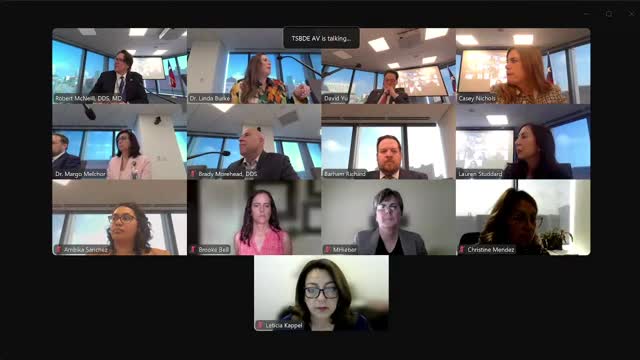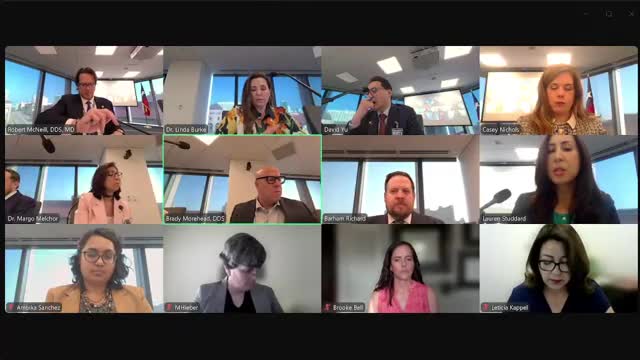Article not found
This article is no longer available. But don't worry—we've gathered other articles that discuss the same topic.

Licensing committee advances remediation rule change, adopts rule cleanups and approves remediation programs and nonprofit employers

Texas dental anesthesia advisory report urges more detailed de-identified data, medical-consult guidance

